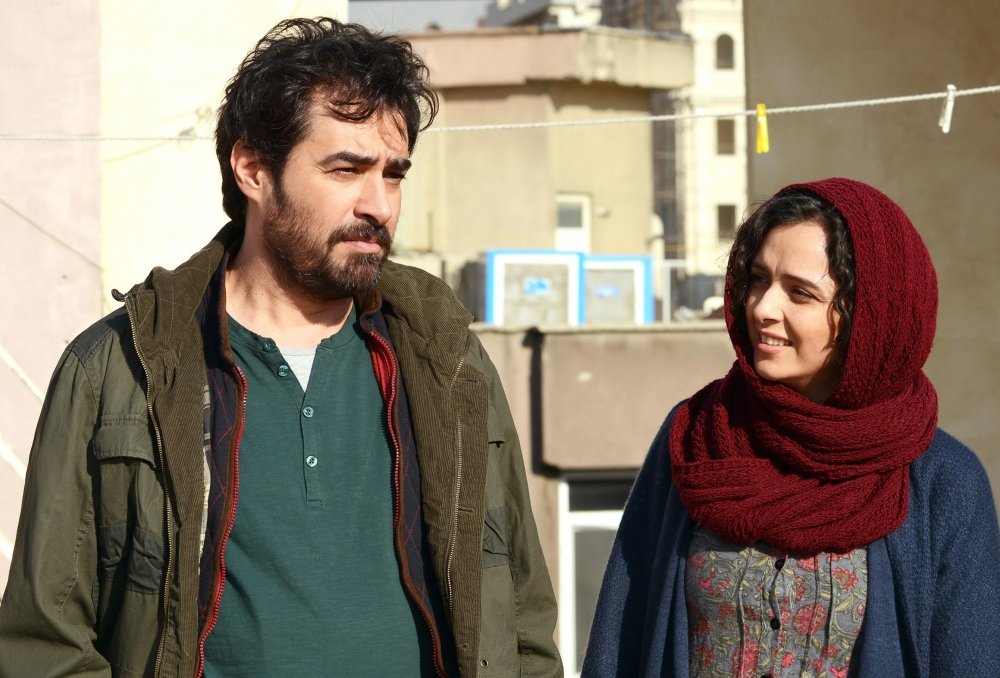Following Foreign Film: “The Salesman”
Emad and Rana converse in front of their new apartment.
August 7, 2017
For this week’s foreign film, I looked toward something modern: “The Salesman,” a 2016 feature from Iran. I first heard about “The Salesman” when it won the Oscar for Best Foreign Language Film in 2017, and writer and director Asghar Farhadi was not present at the ceremony in protest of Donald Trump’s executive order that banned entry for travelers from seven countries, including Iran.
Like Farhadi’s other films, “The Salesman” follows a serious event. It begins when a married couple Emad (Shahab Hosseini) and Rana (Taraneh Alidoosti), both actors starring in a local production of Arthur Miller’s “Death of a Salesman,” are forced to move due to a construction project endangering their previous home. Rana is assaulted in her bathroom one night. As Emad begins to search for the perpetrator, Rana deals with her trauma and details about their apartment’s previous tenant surface, tension builds between Emad and Rana.
Though I admittedly am not familiar with “Death of a Salesman,” it was initially difficult seeing how the play parallels the film. However, by the end, there were noticeable similarities in the two stories’ major themes, such as commentary on changing times and relationship dynamics.
The majority of the movie is told through Emad’s perspective, as the viewer sees him take matters into his own hands and search for Rana’s attacker, while Rana herself is hesitant to come forward about what happened to her. I wished that I could learn more of Rana’s thoughts as a result, but by doing this, Farhadi shows Emad’s belief that he and Rana’s lives can proceed as normal falling apart.
Toward the end of “The Salesman,” Emad finds Rana’s attacker, though it’s not the type of person we would expect to be a villain. At this point, Farhadi plays with his audience’s judgement. I never thought I would feel the slightest sympathy for a character that would be an obvious antagonist any other time, and question how far Emad goes to exact revenge. Nothing in “The Salesman” is black and white.
Finally, I appreciate the realism in how the setting and culture in “The Salesman” are portrayed. We see a modern urban Iran, without the involvement of U.S. politics or international news.
“The Salesman” was an engaging introduction to Farhadi’s work for me, and is a film I see myself revisiting in the future.






